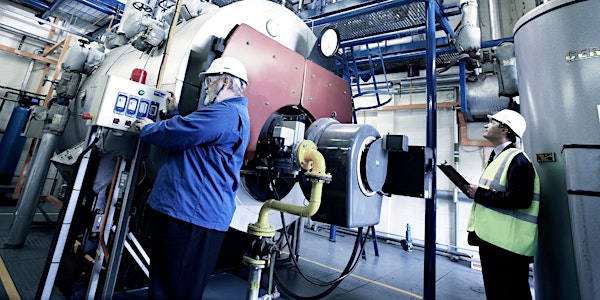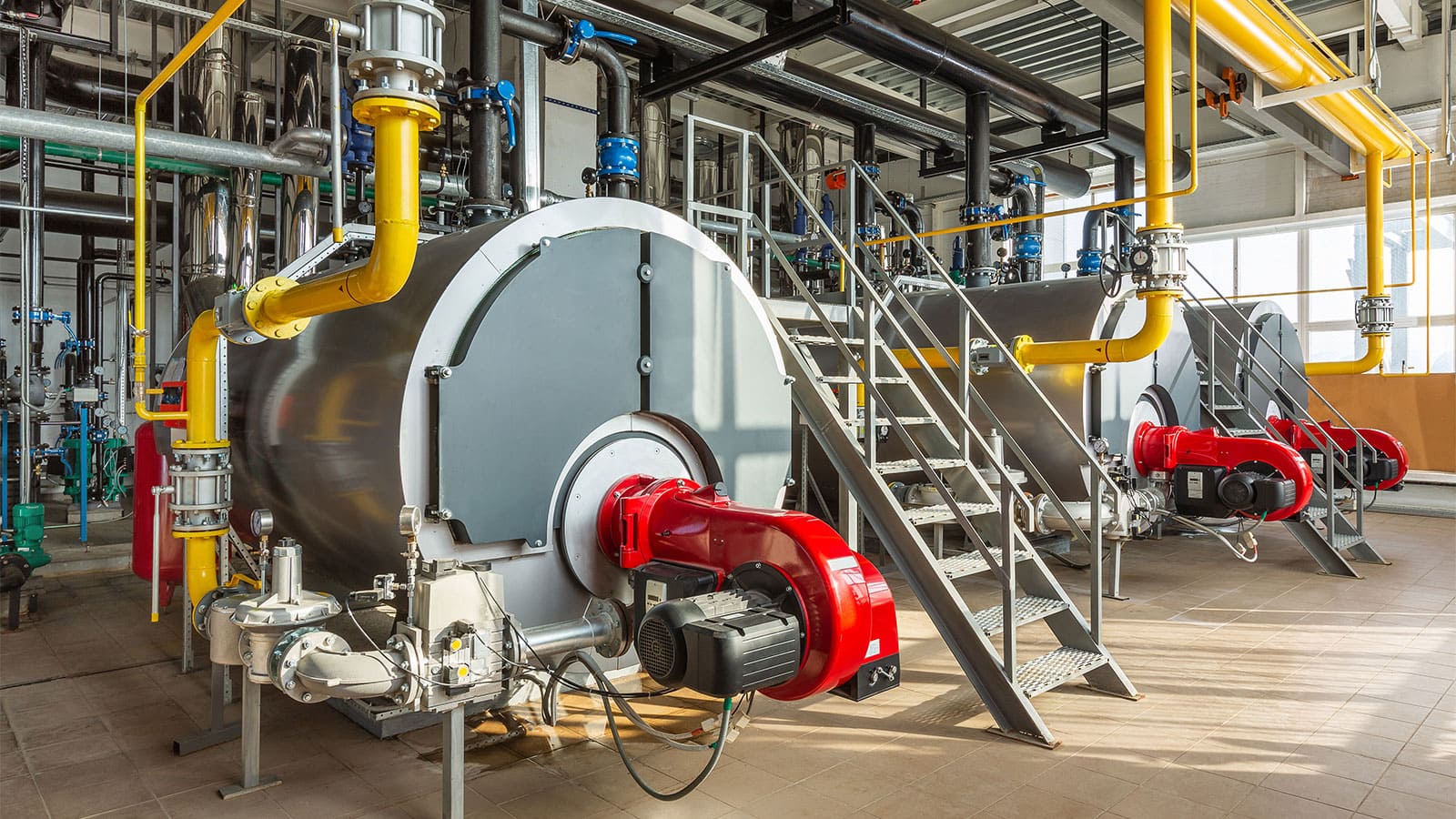Why Comprehensive Central Heating Boiler Training Is Essential for Security and Effectiveness
When it comes to boiler operations, understanding the principles is just the beginning. What occurs when those protocols are neglected, and just how can proper training change your operational effectiveness?
Recognizing the Fundamentals of Central Heating Boiler Operations
Comprehending the essentials of central heating boiler operations is crucial for any person operating in industries that rely upon heavy steam generation. You require to understand how boilers convert water right into vapor with warmth power. Acquaint yourself with the vital components, including burners, warmth exchangers, and safety valves. Each part plays a significant role in the general effectiveness and performance of the system.
You'll additionally wish to understand the thermodynamic concepts that control central heating boiler efficiency. Acknowledging exactly how stress, temperature, and water levels communicate assists you keep an eye on and preserve reliable operations.
Normal upkeep and assessments are necessary for ensuring your central heating boiler runs efficiently. Knowing just how to recognize prospective issues early can prevent expensive downtime.
The Relevance of Security Protocols
When it concerns central heating boiler procedures, safety methods are necessary for securing you and your group. By executing danger reduction techniques and knowing emergency situation feedback treatments, you can considerably decrease possible threats. And also, complying with correct devices dealing with guidelines ensures a safer job atmosphere for everyone involved.
Risk Mitigation Methods
Safety and security protocols play an essential role in threat mitigation approaches, ensuring that you and your group can operate boilers with confidence and efficiency. By complying with developed standards, you reduce the probability of accidents and improve total safety and security. Routine training aids you stay updated on best methods, consisting of proper equipment handling and upkeep checks. Carrying out lists prior to procedure guarantees that nothing is forgotten, from inspecting shutoffs to keeping an eye on stress degrees. Additionally, promoting a culture of safety equips everybody to speak up regarding possible threats. You should additionally motivate team effort and open interaction, allowing your group to share concerns or tips. By focusing on these methods, you'll create a safer work environment and enhance central heating boiler efficiency, inevitably protecting both workers and devices.

Emergency Situation Action Procedures
Reliable emergency situation action treatments are vital for lessening the impact of unforeseen cases entailing central heating boilers. When you know the ideal actions to take, you can act swiftly and effectively, possibly conserving lives and decreasing building damage. Acquainting on your own with these protocols guarantees that everybody on your group understands their roles throughout emergency situations.
Normal training sessions maintain you sharp, enhancing the demand for clear interaction and teamwork. By prioritizing these procedures, you not only safeguard yourself yet additionally cultivate a society of safety within your workplace.
Equipment Handling Guidelines

Common Risks Connected With Improper Central Heating Boiler Management
When boilers aren't managed correctly, significant threats occur that can endanger both personnel and home. One major threat is central heating boiler surges, which can occur due to over-pressurization or failure of safety and security shutoffs.
Improperly preserved boilers can likewise lead to dangerous scenarios like carbon monoxide leakages, presenting serious health threats to employees. In addition, inadequate training can result in incorrect operation, enhancing the possibility of human mistake. Neglecting routine assessments and maintenance is one more usual pitfall, bring about undetected concerns that can escalate rapidly. By acknowledging these dangers, you can take aggressive actions to guarantee a risk-free and efficient central heating boiler operation.
Enhancing Efficiency Through Correct Training
Investing in detailed central heating boiler training can greatly increase effectiveness and safety and security in your procedures (Boiler Training). When your group recognizes the details of boiler systems, they can identify potential concerns before they intensify. Proper training equips your operators with the understanding to maximize fuel usage, maintain suitable stress degrees, and ensure the system goes for peak performance
You'll discover decreased downtime as knowledgeable personnel can troubleshoot problems promptly, decreasing interruptions. Furthermore, when your team is trained to identify click to read the relevance of regular upkeep, they can boost the life expectancy of your equipment, saving you cash in the future.
Additionally, with well-trained team, you can expect less power losses and improved total system performance. This not only aids in decreasing functional prices yet additionally adds to an extra lasting atmosphere. Essentially, extensive training is a wise financial investment that drives performance and promotes a more secure work environment.
Regulative Conformity and Its Impact on Central Heating Boiler Workflow
Understanding compliance criteria is essential for risk-free boiler procedures, as they aid avoid accidents and ensure effectiveness. Disregarding these policies can lead to serious effects, consisting of penalties and operational closures. Routine training not just maintains you informed regarding these standards but additionally enhances overall performance and safety and security in your center.
Relevance of Conformity Criteria
Conformity criteria play an important duty in assuring secure and effective boiler operations, as they develop the guidelines that producers and operators have to comply with. By adhering to these standards, you help decrease risks connected with boiler breakdowns and boost total efficiency. When everybody in your organization understands and adheres to these standards, you produce a culture of safety and security that inevitably benefits everybody included in central heating boiler operations.
Consequences of Non-Compliance
Ignoring conformity standards can bring about severe consequences for central heating boiler operations. When you overlook policies, you risk facing hefty penalties and charges that can stress your spending plan. In addition, non-compliance can lead to lawsuits, possibly damaging your organization's online i loved this reputation. Security hazards additionally enhance when requirements aren't met, jeopardizing employees and resulting in accidents that can have devastating effects. Equipment failures become most likely without appropriate upkeep protocols, causing costly downtime and repair services. Your insurance protection could be jeopardized, leaving you at risk to monetary loss. Eventually, the effects of non-compliance extend beyond immediate expenses; they can develop a society of carelessness that influences general functional performance and safety and security over time.
Advantages of Routine Training
While lots of companies concentrate on conference regulative needs as a checkbox exercise, investing in regular training for your boiler procedures can significantly enhance safety and effectiveness. By ensuring your team is well-versed in the most up to date regulations and finest techniques, you lower the danger of accidents and try this website costly downtime - Boiler Training. Regular training keeps your operators informed concerning updates in innovation and compliance standards, cultivating a culture of safety and responsibility
In addition, skilled workers can quickly recognize potential concerns, protecting against minor problems from intensifying right into major failings. This proactive strategy not just help compliance yet likewise enhances boiler efficiency, eventually conserving you money in repair services and energy prices. Essentially, normal training is an essential investment in both compliance and operational quality for your company.
The Role of Innovation in Modern Boiler Training
As technology continues to progress, it plays a vital function fit modern-day boiler training programs. You'll discover that digital reality (VIRTUAL REALITY) and simulation tools provide immersive experiences, permitting you to exercise real-life situations without threats. These innovations allow you to troubleshoot and reply to prospective concerns in a safe atmosphere, improving your confidence and abilities.
In addition, online discovering platforms give flexible access to training products, so you can find out at your own pace. You can revisit complicated subjects, ensuring you fully comprehend necessary principles. Data analytics additionally plays a considerable function, as it assists track your progression and determines areas needing enhancement.
Including mobile applications right into your training permits for on-the-go knowing, making it much easier to remain upgraded with the current sector standards and practices. By embracing technology, you improve your training experience, ultimately resulting in much safer and a lot more efficient procedures in your boiler systems.
Buying Continual Education for Operators
Investing in continuous education for drivers is essential for preserving high security and effectiveness requirements in boiler procedures. By committing to ongoing training, you assure that your group stays updated on the current innovations, security protocols, and sector finest techniques. This expertise not only helps prevent accidents but additionally improves the total efficiency of your central heating boiler systems.
Routine training sessions maintain drivers involved and motivated, encouraging them to determine and resolve concerns proactively. They'll find out exactly how to recognize possible dangers and respond successfully, which promotes a society of safety within your organization. Moreover, constant education permits drivers to adjust to progressing policies and criteria, ensuring conformity and minimizing liability dangers.
Ultimately, purchasing your drivers' education and learning converts to improved functional efficiency and a much safer job setting. By prioritizing their growth, you're not simply meeting regulatory requirements; you're additionally demonstrating a commitment to security and excellence in central heating boiler procedures.
Often Asked Concerns
What Credentials Should Trainers Have for Effective Boiler Training?
For efficient central heating boiler training, fitness instructors should have appropriate certifications, substantial hands-on experience, and a strong understanding of existing guidelines. They have to communicate plainly and engage participants, making sure every person grasps important principles and safety and security practices.
How Commonly Should Boiler Operators Undergo Refresher Course Training?
You must guarantee boiler drivers go through refresher training a minimum of every year. Normal updates keep abilities sharp, strengthen security methods, and assistance operators stay notified concerning the current regulations and innovation in central heating boiler administration.
What Are the Indications of an Improperly Trained Central Heating Boiler Driver?
If you notice irregular procedure, regular equipment breakdowns, or an absence of understanding concerning safety protocols, those are indicators of an improperly educated boiler driver. Trust fund your instincts; safety and security ought to constantly precede in central heating boiler operation.
Can Online Training Be as Reliable as In-Person Training?
On-line training can be equally as effective as in-person training if it's interactive and well-structured. You'll find out at your own rate, yet you might miss hands-on experience that in-person sessions supply.
What Costs Are Associated With Comprehensive Central Heating Boiler Training Programs?
Thorough central heating boiler training programs often entail costs like training course fees, materials, and accreditation. You could also sustain expenses for traveling if participating in in-person sessions, in addition to possible downtime during training durations.